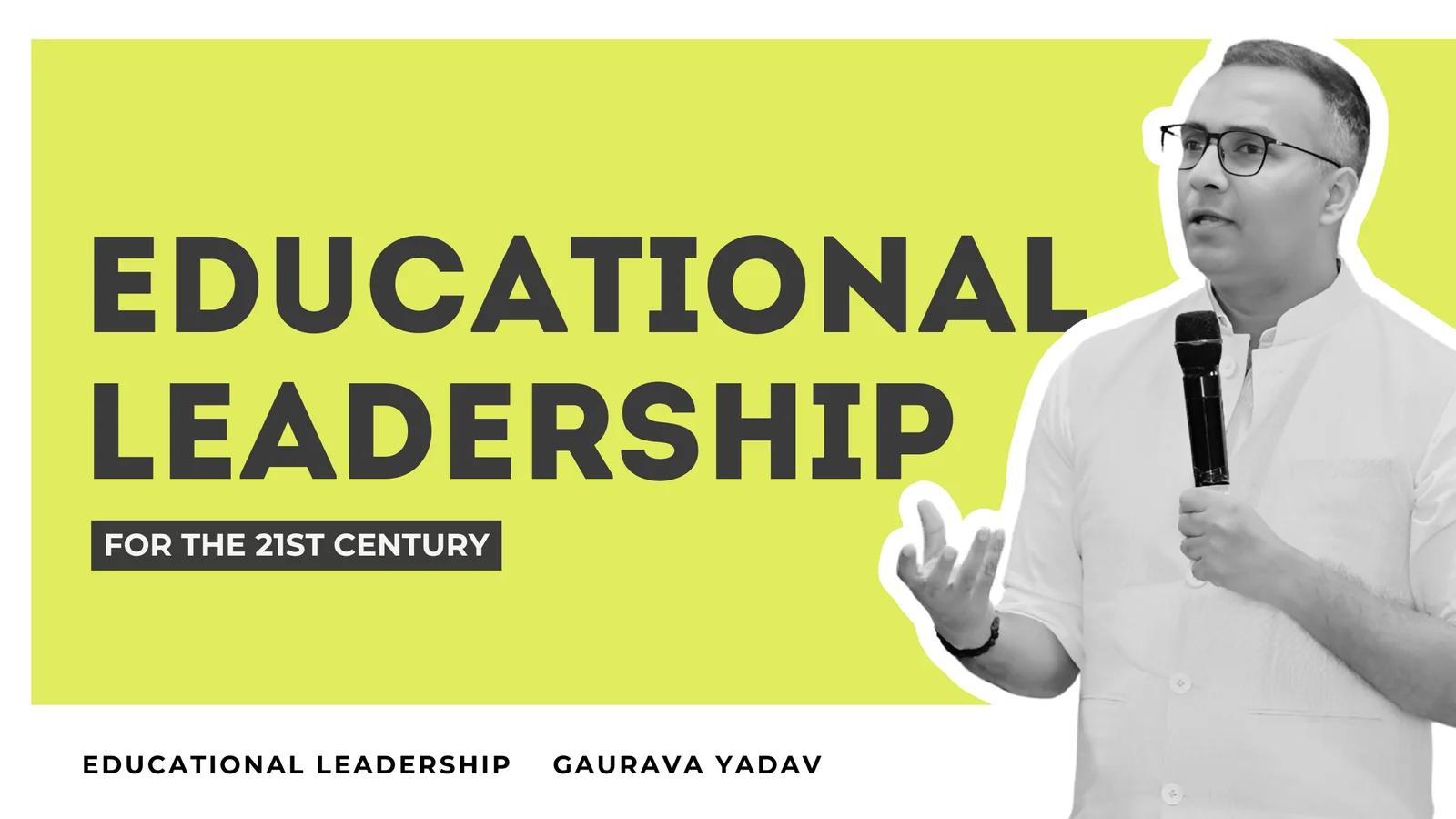
Educational Leadership for the 21st Century
Empowering school leaders to navigate change and foster excellence in education
Educational Leadership for the 21st Century
Empowering school leaders to navigate change and foster excellence in education


As the founder of the Indian Principals' Network (IPN) FORUM, I've had the privilege of working with over 15,000 school leaders across 55+ countries. This vast experience has given me unique insights into the evolving landscape of educational leadership. In this post, I want to share my thoughts on what effective educational leadership looks like in the 21st century.
The Changing Role of Educational Leaders
The role of school principals and educational leaders has undergone a profound transformation in recent years. No longer are principals merely administrative managers; they are now expected to be visionary leaders, instructional coaches, community builders, and agents of change. This expanded role requires a new set of skills and mindsets.
In my interactions with school leaders through IPN, I've observed that the most successful educational leaders share several key qualities that set them apart in today's complex educational landscape.
"The most effective school leaders are those who can balance vision with pragmatism, innovation with tradition, and authority with empowerment. They lead not from a position of power, but from a foundation of purpose."— Gaurava Yadav
Key Attributes of Effective 21st Century Educational Leaders
1. Adaptive Vision
Today's educational leaders must have a clear vision for their schools that is both ambitious and adaptable. The rapid pace of technological, social, and economic change means that rigid, unchanging visions quickly become obsolete. The most effective leaders I've worked with maintain a strong core purpose while continuously refining their strategy based on emerging needs and opportunities.
2. Distributed Leadership
Gone are the days of the heroic, solo leader who single-handedly transforms a school. The complexity of modern educational challenges requires collaborative approaches that leverage the diverse talents and perspectives within the school community. Successful principals actively empower teachers, staff, students, and parents to take on leadership roles, creating a culture of shared ownership and innovation.
3. Data-Informed Decision Making
Effective educational leaders use data not just to measure performance but to inform continuous improvement. They gather multiple forms of evidence—from academic assessments to stakeholder feedback—and use this information to guide strategic decisions. However, they also recognize that not everything of value can be measured, balancing quantitative metrics with qualitative insights.
4. Cultural Competence
In our increasingly diverse and interconnected world, educational leaders must develop deep cultural competence. This means not only respecting diversity but actively leveraging different cultural perspectives to enrich the educational experience. Leaders who can navigate cultural differences effectively create more inclusive and equitable learning environments.
5. Technological Fluency
While school leaders don't need to be technology experts, they do need to understand how digital tools can transform teaching and learning. The most forward-thinking principals I've worked with maintain a balanced perspective on technology—embracing its potential while being mindful of its limitations and ethical implications.
Developing the Next Generation of School Leaders
At IPN, we've dedicated ourselves to nurturing these qualities in current and aspiring school leaders. Our approach to leadership development focuses on several key strategies:
Collaborative Learning Networks
We've found that school leaders learn best from each other. By connecting principals across different contexts—from rural schools to urban academies, from traditional institutions to innovative startups—we create opportunities for cross-pollination of ideas and practices.
Mentorship Programs
Pairing experienced principals with emerging leaders provides valuable guidance and accelerates leadership development. These relationships often evolve into mutual learning partnerships, with newer leaders bringing fresh perspectives that challenge established thinking.
Real-World Problem Solving
Effective leadership development goes beyond theory. We engage school leaders in tackling authentic challenges in their schools, providing structured support and feedback as they implement solutions.
Reflective Practice
Perhaps the most powerful tool for leadership growth is structured reflection. We encourage school leaders to regularly examine their decisions, actions, and impact, building self-awareness and adaptive capacity.
The Path Forward
As we look to the future of educational leadership, several emerging trends will shape the landscape:
- Well-being Focus: School leaders will increasingly prioritize student and staff well-being as foundational to academic success
- Systems Thinking: Effective principals will think beyond their school walls, understanding how their institutions fit into broader educational and social ecosystems
- Entrepreneurial Mindsets: Resource constraints will require leaders to become more innovative in how they secure and allocate resources
- Global Perspective: Even locally-focused schools will need to prepare students for a global context, requiring leaders with international awareness
Through the Indian Principals' Network, we remain committed to supporting school leaders on this journey. By connecting educational leaders across boundaries, facilitating knowledge exchange, and providing targeted development opportunities, we aim to catalyze school leadership that is ready for the challenges and opportunities of the 21st century.
Our collective success in transforming education depends on how effectively we nurture and empower those who lead our schools. I invite all educational stakeholders to join us in this vital mission.











